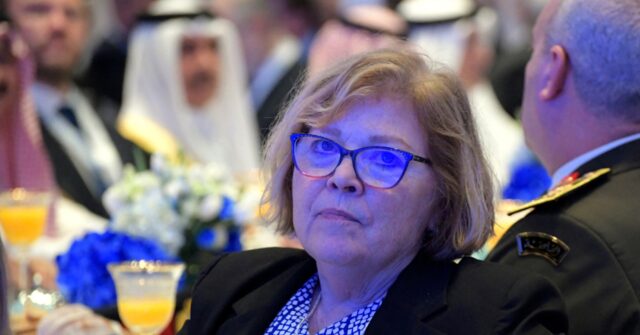In a significant diplomatic shift, a group of U.S. officials has recently met with leaders from Hayat Tahrir al-Sham (HTS), the insurgent coalition responsible for the ousting of Bashar Assad from power in Syria. This meeting comes just two weeks after Assad’s departure marked the end of a decades-long authoritarian rule. HTS, a prominent faction within the opposition, has a complicated history, as it is an offshoot of al-Qaeda and was designated a terrorist organization by the U.S. in 2018. The group’s leader, Muhammad al-Jolani, who has been accused of terrorism and is the subject of a $10 million bounty by the FBI, is now attempting to rebrand HTS as a more moderate entity. This shift in strategy appears to be motivated by both a desire for legitimacy and a need to secure international support, especially amidst fears of a repeat of the Afghan scenario following the U.S. withdrawal.
Western governments appear cautiously optimistic about HTS’s recent attempts at moderation, despite the underlying challenges. There are widespread concerns within the international community about the possibility of a governance vacuum in Syria, similar to the situation in Afghanistan after the Taliban regained power. In the aftermath of Assad’s ousting, HTS has expressed admiration for the Taliban, which could pose a concern for the international community that is wary of the group’s potential for establishing a similar regime in Syria. The swift congratulatory response from the Taliban following Assad’s removal has raised alarms, reinforcing the urgency for foreign governments to engage HTS in a constructive dialogue to prevent further destabilization.
Amid these concerns, diplomatic dialogues have commenced, with European nations and the United Nations taking the preliminary steps to open channels with HTS, despite their terrorist designation. Delegations from various European nations and the UN met with Jolani, and a subsequent U.S. delegation was led by Assistant Secretary of State for Near Eastern Affairs, Barbara Leaf, marking a historic engagement in Damascus since 2011. The official stance from the U.S. State Department emphasizes engagement with the Syrian populace, civil society activists, and various communities, aiming to understand their aspirations for the future.
U.S. Secretary of State Antony Blinken has addressed the potential consequences of HTS’s decision-making, cautioning against following the Taliban’s example. He articulated fears of HTS becoming globally isolated unless they undertake certain reforms that align with international expectations. Blinken’s discussions point to a dual approach by the Biden administration—expressing skepticism about Jolani’s ability to deliver on promises while simultaneously offering incentives for constructive behavior, such as locating American journalist Austin Tice, who went missing in Syria in 2012.
HTS’s leaders are acutely aware of the need for international goodwill to facilitate the removal of their terrorist designation. However, achieving this is complicated by geopolitical dynamics, including the influence of Russia, which holds veto power over U.N. designations. Jolani has attempted to project a more favorable image, denouncing the Taliban’s treatment of women and asserting that Syria is a more diverse society compared to Afghanistan. Such statements are purposefully crafted to resonate with Western sensibilities and ease international apprehensions about HTS’s governance ambitions.
Ultimately, HTS aims to solidify its power and legitimacy in Syria, planning to manage government functions until a “caretaker government” can be established by March 1, followed by the writing of a new national constitution. The ongoing engagement of international actors with HTS illustrates a complex balancing act, as the world grapples with the reality of dealing with a group that still holds a troubling ideological lineage while hoping for a peaceful resolution to the Syrian crisis. As diplomats navigate this delicate landscape, the implications for Syria’s future remain uncertain, hinging on HTS’s ability to uphold its promises of moderation and inclusion.

